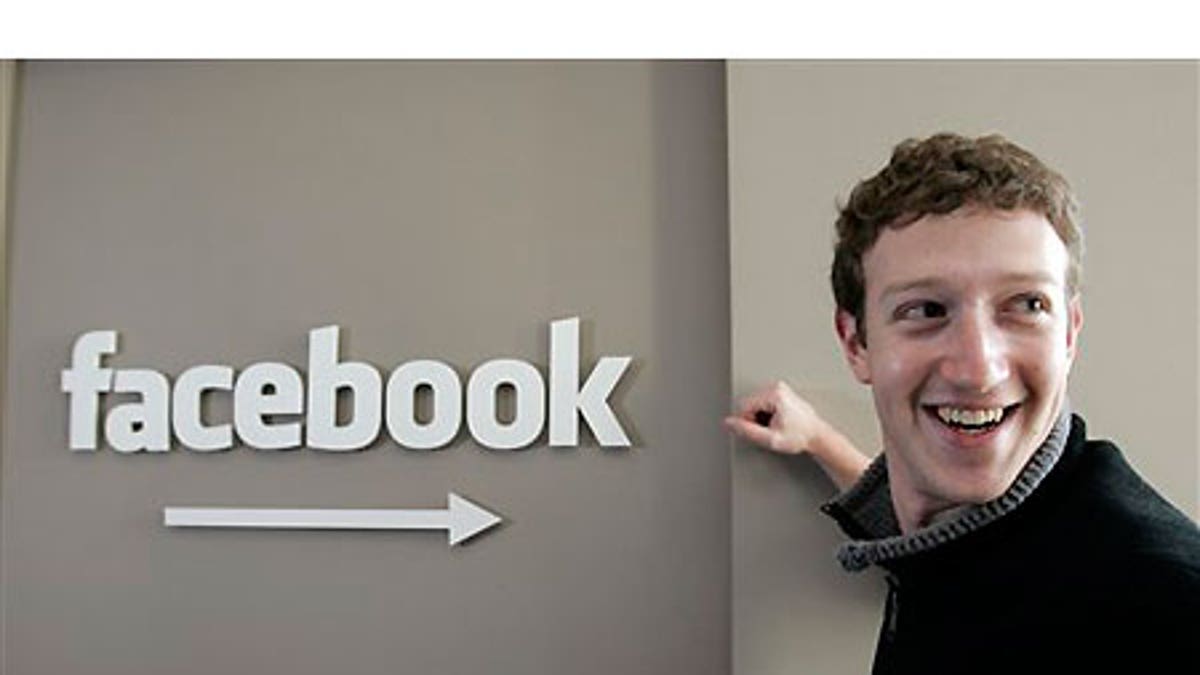
The way things are going, no one is ever going to be able to whine about anything -- especially about their boss being a jerk -- without fear of being fired. You won't even be able to whine to your friends -- your Facebook friends, that is.
A virtual friending frenzy has whipped up over the past week based on reports that some employers have asked job applicants to submit their Facebook passwords as part of some misguided vetting process. Goodness help you if you've ever criticized or complained about anything online; you might not get the job.
The only confirmed cases of such hiring harassment have occurred at government departments, such as local law enforcement agencies. But simply the idea that this is beginning to happen has raised more hackles than drug-testing potential employees. Two senators even fired off a letter to Attorney General Eric Holder and the U.S. Equal Employment Opportunity Commission, requesting an investigation into the practice.
Meanwhile, Facebook was forced into the rather odd position of warning businesses not to pry into its users’ personal pages. (It's an odd position because that's exactly what Facebook is all about: sharing personal information.)
So why all the hubbub, bub?
Some have suggested that providing your password is like giving your employer the keys to your home and allowing them to walk in whenever they liked ("Don't mind me, Mrs. Smith. I'm just going to rifle through your family's dirty laundry and then I'll be out of your hair."). That's an apt analogy. There's also the issue of personal security: The more companies that have access to this information, the more vulnerable you are to ID theft and fraud.
For Facebook's part, it's yet another privacy headache for a company famous for its migraines, and one that could finally scare users away. If it became standard practice for employers to demand passwords, people would stop posting vacation pictures, friending long-lost college pals and playing FarmVille.
But I think the real issue goes beyond questions about privacy and one's public and personal spheres. It's more fundamentally an attack on your ability to express yourself and vent without fear of reprisal. And that would be no fun at all.
I like -- and not just Facebook "like" -- the fact that my friends online occasionally say things that are outrageous or could offend someone. People should be able to argue about Tebow and Tiger, health care and homeland security, without worrying that what they think might mean they can't pay the mortgage next month.
Look closely at your Facebook friends' postings and you'll certainly find something that could offend a potential employer: too religious, not religious enough, too liberal, too conservative, too country, too rock ’n’ roll. Too inebriated.
Giving companies access to all this information would be like having a non-disparagement clause on your life. Don't ever criticize a restaurant, business, politician or airline, lest you might get turned down for a job.
Some apps try to strip the personal from the professional, preserve your privacy and still let you leverage Facebook connections. The job site Monster has Beknown, for example, claims it can help you connect with employers "without mixing business and friends."
There's also Branchout and Find.ly. Find.ly's blog states that it allows a "candidate to voluntarily share their own contact information and work history from Facebook, LinkedIn or MySpace in order to streamline the job seeking process."
Some companies looking for the best applicants are using these services.
Sears, an American-as-apple-pie brand name if ever there was one, uses Find.ly to enable those looking for work to connect with the company via Facebook. But it doesn't ask for passwords or demand that you friend the company or even have access to your wall postings, according to spokeswoman Kim Freely.
The service automatically informs the company if your job history or work skills listings are updated. The idea is to provide a real-time, updated list of applicants with current information, applicants who may be perfect for a new job posting they didn't even apply for, or who might otherwise get overlooked for a position.
You can apply to Sears in the traditional way, using a resume, or "you can apply via Facebook," emphasizes Freely. It may represent a generational change, as well. "People update their social profiles more often than they update their resumes," Freely said. (Guilty as charged.) Sears now even posts jobs on Twitter at @shcjobs.
Today, hirers are in the cat bird's seat. If you refuse to hand over your passwords, a company can quietly decline to hire you -- and there's nothing you can do about it. The employer can't be sued for discrimination, because the company never had access to information on which it could base any discrimination.
Perhaps the best solution would be for us all to follow the Web-honored tradition of creating fake online personae. One profile lists books you really like; the other lists books you think you're supposed to read. One profile pic shows you standing on your head on a beach in Bali; the other has you in a red rep tie.
This violates Facebook's terms of service and undermines the company's whole business model, of course. But who are you going to obey, Facebook or a potential employer?
Follow John R. Quain on Twitter @jqontech or find more tech coverage at J-Q.com.








































